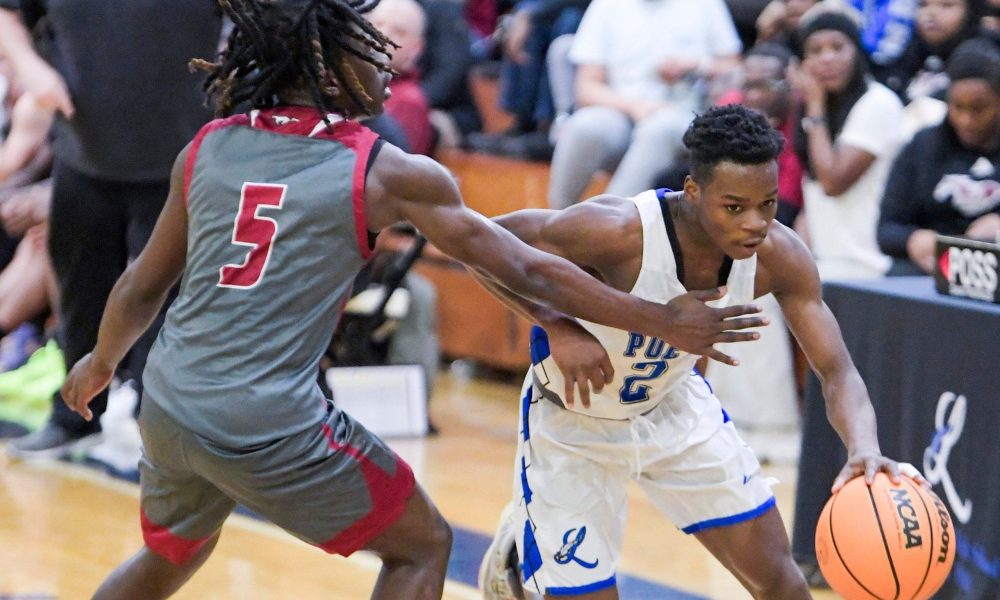NIL
Anthony Davis warns college basketball culture is crumbling under chaotic NIL money battles
In an era where college basketball is navigating through uncharted waters, the influx of Name, Image, and Likeness (NIL) deals has stirred a mix of excitement and concern. At the heart of this evolving landscape is Anthony Davis, a Dallas Mavericks star whose collegiate achievements at Kentucky are etched in the annals of college basketball […]

In an era where college basketball is navigating through uncharted waters, the influx of Name, Image, and Likeness (NIL) deals has stirred a mix of excitement and concern. At the heart of this evolving landscape is Anthony Davis, a Dallas Mavericks star whose collegiate achievements at Kentucky are etched in the annals of college basketball history. Davis, whose freshman year feats propelled him to the pinnacle of college basketball, recently shared his insights on the seismic shifts being prompted by NIL agreements.
The Golden Era of College Basketball
Anthony Davis’s journey through college basketball was nothing short of spectacular. As a freshman at Kentucky, he not only clinched the Wooden National Player of the Year Award but also led his team to a national championship in 2012. With an average of 14.2 points, 10.4 rebounds, and an astonishing 4.7 blocks per game, Davis’s college career was a harbinger of his future success in the NBA. His transition from college to being the first overall pick in the 2012 NBA Draft by the New Orleans Hornets marked the end of an era and the beginning of his professional journey.
The NIL Conundrum
Fast forward to today, and the college basketball landscape has undergone a radical transformation, primarily due to the introduction of NIL deals. Davis, reflecting on these changes, highlighted the complexities and challenges that NIL has introduced into the sport. “It’s tough, because obviously they didn’t have that when I was in college,” Davis remarked, pointing out the stark differences between his time in college basketball and the present day.
The crux of Davis’s concern lies in the integrity of the game. The lure of NIL deals, according to him, has begun to overshadow the essence of college basketball, with players choosing schools not for their programs or the quality of coaching but for the financial incentives on offer. This shift, Davis argues, has not only affected the recruitment process but has also made it difficult for coaches to build and maintain a team culture. “It kinda takes away from the game a little bit because of—and I’m not hating—it takes away from the integrity in the sense of players are only going to certain schools because of the money,” Davis explained.
A Culture at Crossroads
The ability of players to transfer with ease, facilitated by the NIL deals, has further complicated the dynamics within college basketball. Davis pointed out that this fluidity in player movement threatens to erode the sense of community and continuity that teams strive to build. “The coaches either have to be more strategic with their recruiting, or if you don’t have a lot of money for NIL, that kind of takes away your school, your program, as far as being a top recruiter for some of these players,” he said, emphasizing the challenges faced by programs not flush with NIL funds.
The Path Forward
Despite the challenges posed by NIL, there’s an acknowledgment of its necessity. The principle that players deserve compensation for their contributions is widely accepted; however, the absence of regulation has turned the system into what Davis describes as the “Wild West.” This unregulated environment raises questions about the future of college basketball and whether it can find a balance between maintaining the sport’s integrity and ensuring fair compensation for its athletes.
As college basketball continues to navigate through the complexities of NIL deals, the insights of players like Anthony Davis offer a valuable perspective on the evolving landscape. The challenge ahead lies in finding a middle ground that preserves the essence of college basketball while embracing the inevitable changes brought about by NIL. The journey of adapting to these changes is just beginning, and the decisions made today will shape the future of the sport for generations to come.